It’s true what they say, there’s no place like home. And while some cities are enjoying relaxed social distancing restrictions, we can all agree that we’re spending more time at home than anywhere else. And whether we’re home working, studying or just relaxing, we need a suitably comforting and healthy space to lower stress and anxiety levels, and increase creativity and peace of mind.
Fortunately, you don’t need a prescription or therapy session – all it takes is a simple visit to your local garden store. These are the best indoor plants for enhancing your health and your time spent at home, no green thumbs necessary.
For Stress Relief
Jasmine
It’s no wonder why so many perfumes, soaps and candles sport the scent of this plant native to Asia and the Pacific: Studies confirm that the sweet aroma of jasmine petals can help reduce levels of anxiety, depression and panic attacks. We’re not saying you should skip your next therapy session, but it can’t hurt to get yourself a pretty pot and a jasmine plant.
Fiddle-Leaf Fig
This ultra-trendy plant is ideal for tight spaces: It’s thin and doesn’t take up excessive amounts of space. And apart from being a must-have home decor element of the moment, fiddle-leaf figs are said to remove up to 85% of toxins from the air, leaving a much cleaner and more relaxing environment. You only need to water it once a week and clean the leaves when they get dusty – minimal effort that’s totally worth it.
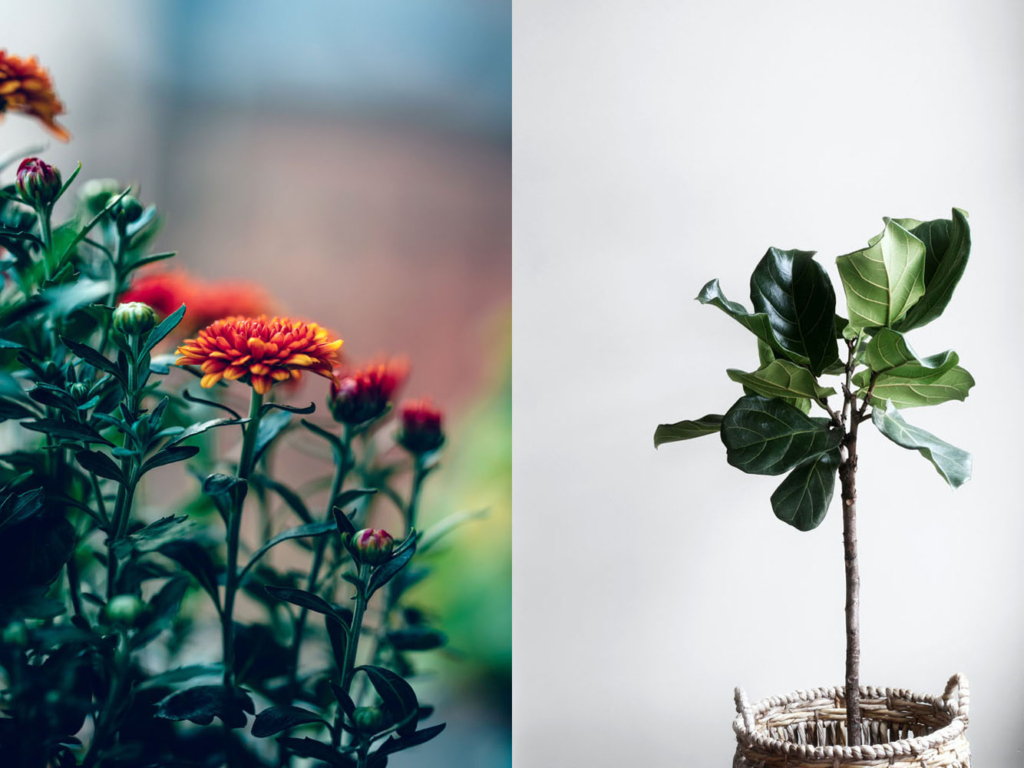
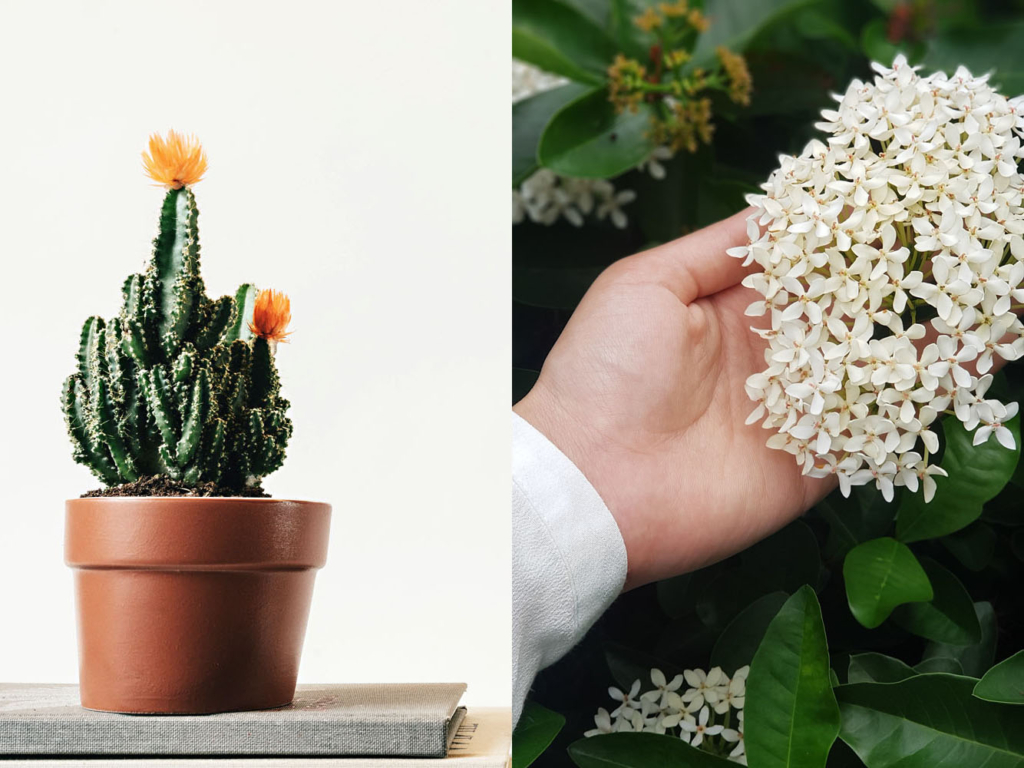
Chrysanthemums
Flowers of every kind brighten up anyone’s day – their colours, shapes and scents are a foolproof formula for boosting one’s mood. Chrysanthemums in particular can help minimise stress symptoms thanks to their aroma, and adding a couple of leaves to your daily tea time is the perfect way to relax the body after a long workday (or a Netflix binge, who’s to judge?).
Cactus
From the desert to your living room. Cacti can be a beneficial addition to your home – obviously they make stylish centrepieces, but according to the principles of feng shui, they also protect the home from bad energy. Even if feng shui isn’t really your thing, it’s hard to deny the convenience aspect of cacti as houseplants: they only need minimal water to survive, so no stress if you occasionally forget to water them.
For Better Sleep
Peace Lily
The name says it all: for a peaceful night, this is it. Peace lilies are said to absorb harmful chemicals like ammonium and benzene, and raise humidity levels in the environment for better breathing, fewer nasal problems and more moisturised skin. You should only water it when you notice that the leaves are starting to wilt, but other than that, enjoy your good night’s sleep!
Snake Plant
If you have trouble sleeping, the snake plant – or ‘mother-in-law’s tongue’ – is a safe bet… despite its nightmarish names. During the night, it produces oxygen and absorbs carbon dioxide, creating a cleaner sleeping environment. You only need to water it every two weeks, as its leaves and roots store a lot of moisture. We recommend keeping it in indirect light for better care.
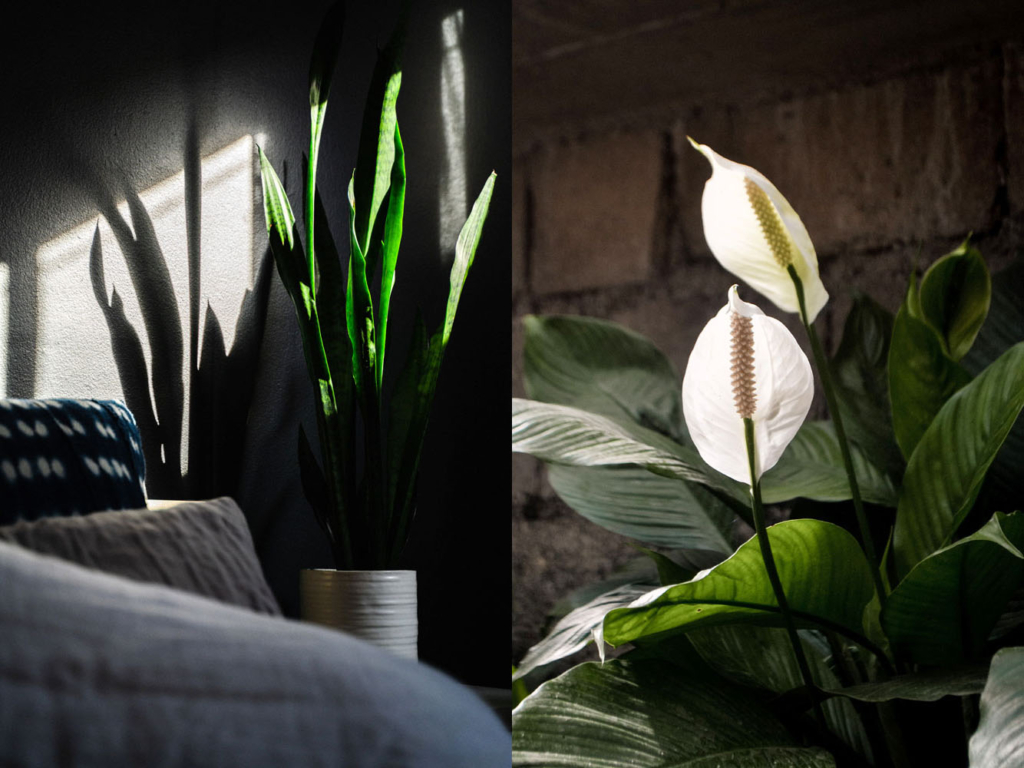
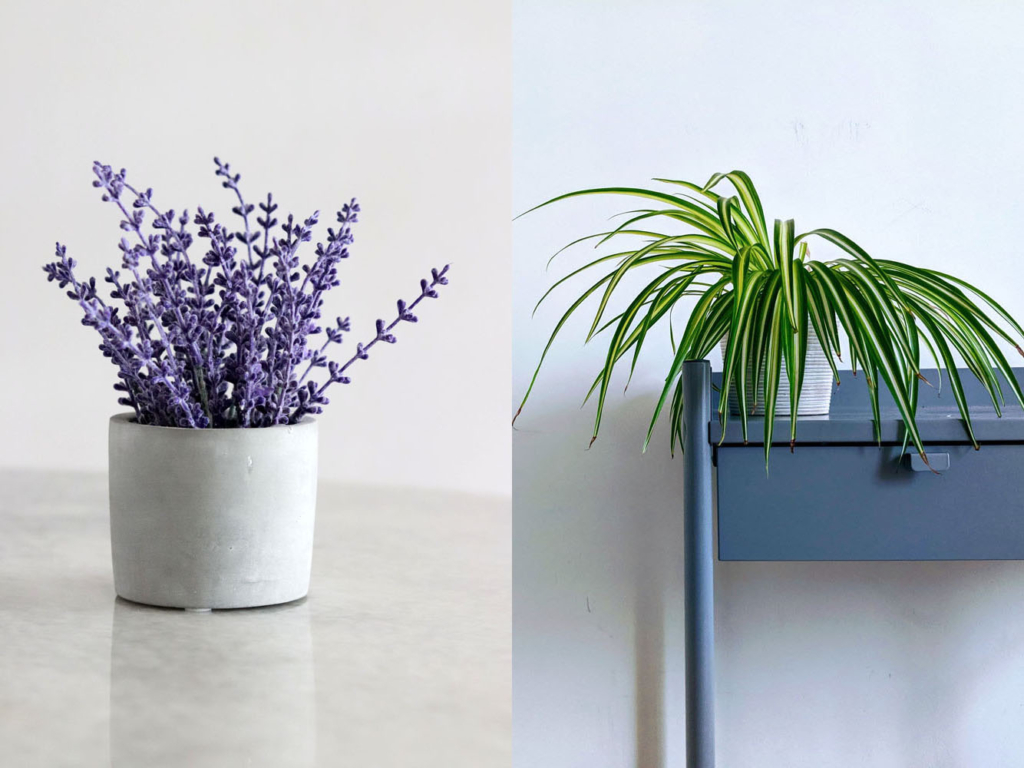
Lavender
Sure, a few drops of lavender oil in your diffuser would do much of the work for an ideal rest, but why not go straight to the source and place a lavender plant next to your bed? The natural scent of lavender lowers heart rate and blood pressure to get your body ready for the state of total relaxation needed to catch those ‘zzzzs’. Bonus: Tea made from lavender buds is known to calm nerves and promote better sleep.
Spider Plant
Another scary-sounding plant that can actually bring sweet dreams, spider plants rank high for their ability to purify the air and eliminate toxins and odours. In addition, by absorbing carbon monoxide and benzene, they can help improve headaches, ensuring you’re well-rested by sunrise. Still not convinced? The spider plant needs a minimum of attention and care, so even if you weren’t born with a green thumb, it’s pretty hard to do wrong by this one.
For Improved Focus
Coffee Plant
What can promote productivity and creativity more than a cup of joe? This plant …well, maybe. It does smell pleasant, though not necessarily like coffee, when it blooms, and the leaves can be roasted and boiled to make a mildly caffeinated tea. Maintenance of a coffee plant is easy: Just water it when the leaves start to wilt, and keep it in a place with indirect light – and who knows, you might eventually get a couple of beans to roast!
Jade Plant
Jade plants come highly recommended for the home. And after all, anything called a ‘money tree’ or ‘lucky plant’ must be good for something, right? While we can’t guarantee you’ll win the lottery after buying one, this plant has been shown to absorb nasty things like toluene, a chemical found in paint thinners and glue that can cause tiredness, weakness and insomnia. With cleaner air, your concentration and attention levels increase, improving your overall productivity.
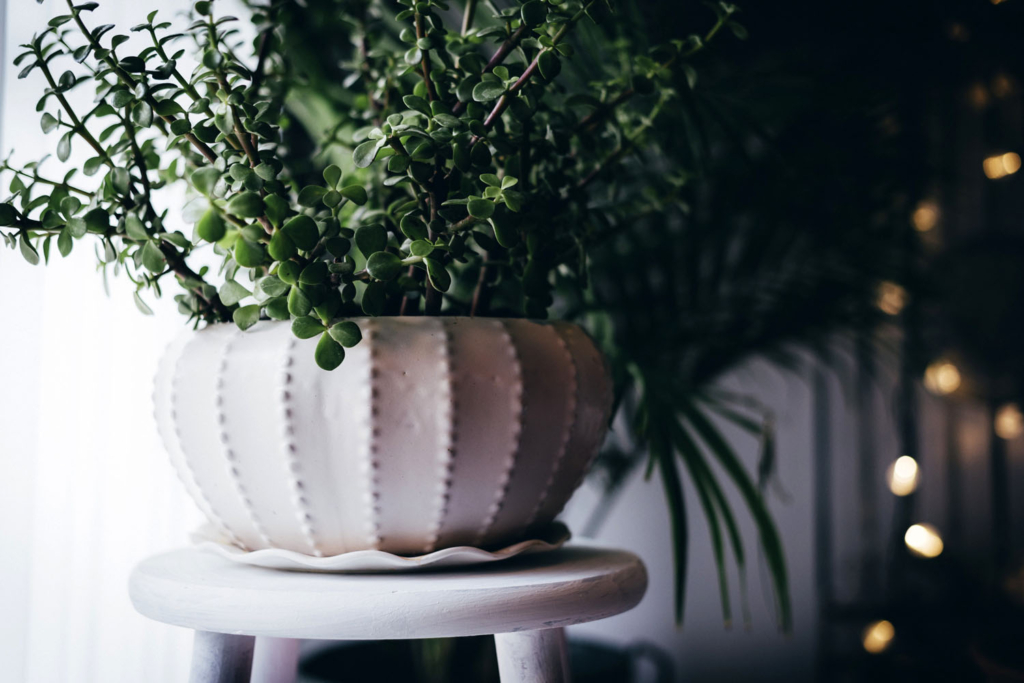
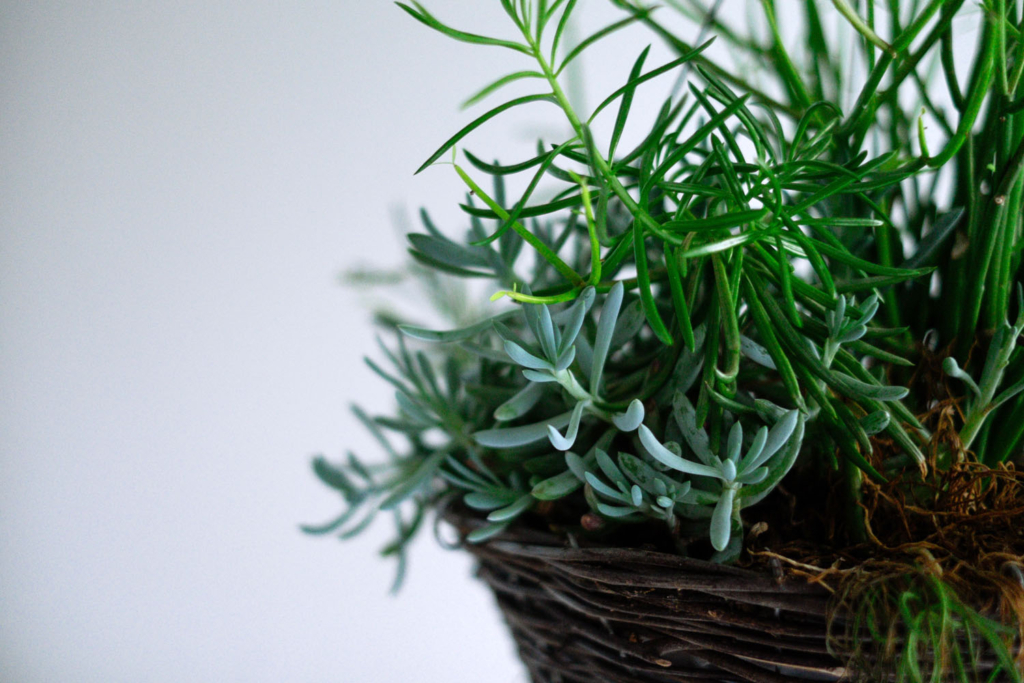
Rosemary
If you’re having difficulty meeting deadlines, we’ve got one word for you: rosemary. The aroma of this herb has been shown to improve memory and concentration, resulting in increased productivity. Plus, the scent exhibits mood-enhancing properties, helping you stay focused and feeling good. Out with distractions, in with sweet aromas.
For Overall Health
ZZ plant
Native to Africa, the ZZ plant is ideal for rookie plant parents. If you’re one of those people who forgets to water their greenery, it still has a pretty good chance of surviving in your home, as it requires minimal amounts of water (once a week) and can be kept in a place with little light. Easy, right? But more importantly, it is said to reduce moisture and toxin levels, resulting in more purified air and fewer allergies and lung problems.
Bird Of Paradise
This eye-catching plant not only adds an exotic touch to any room, thanks to its vibrant flowers, but its long leaves are considered excellent air purifiers; ideally place this one somewhere you spend a lot of time, to ensure better lung health. In order for it to grow as it should, a bird of paradise will need plenty of sunlight. Also, be sure to fertilise it during the hotter months.
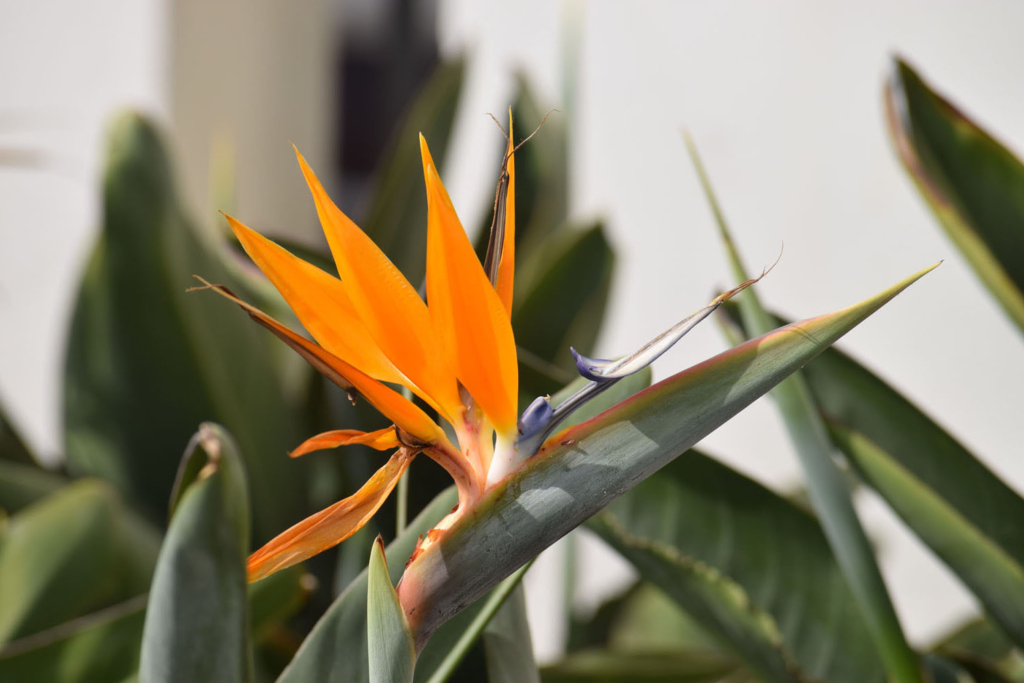
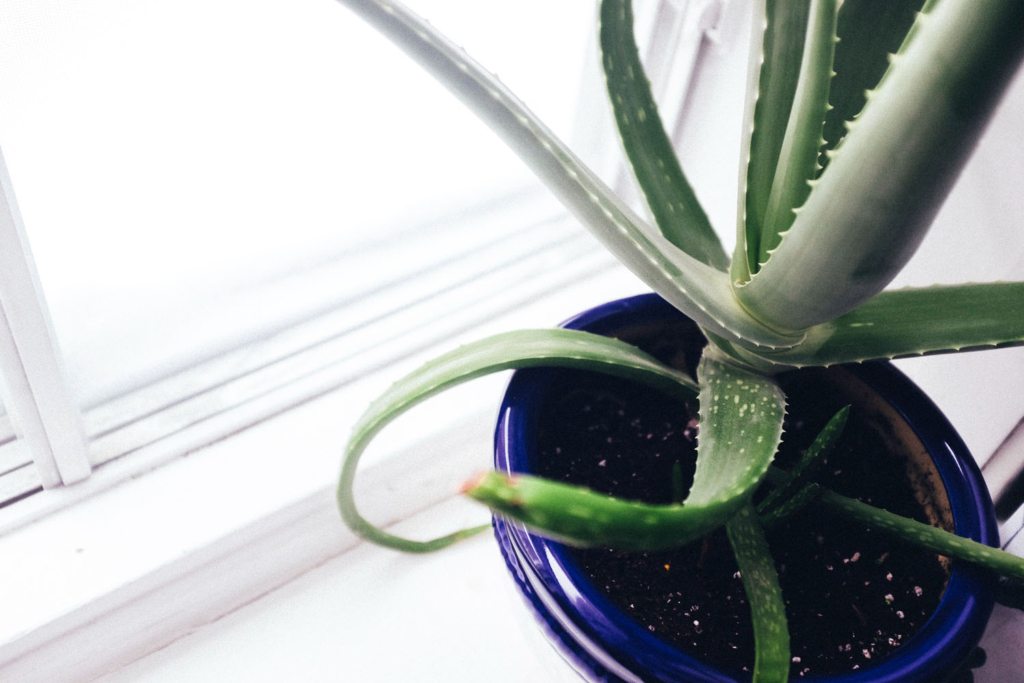
Aloe
Low-maintenance? Check. Easy on the eyes? Check. A handful of medical and cosmetic uses? Double check. Aloe is well-known for its healing properties: Aloe vera, the juice of its leaves, can aid in the healing of wounds, burns, acne and many skin irritations. Drink it mixed with a glass of water, and it will improve digestion and promote hydration, while providing a dose of beneficial vitamins and minerals. What else can you ask for? That it takes care of itself? Well, it basically does. Just water it once a week and place it under indirect light. Easy peasy.
Boston Fern
Thanks to its lush foliage, the Boston fern is known as one of the best air purifiers (in terms of plants, of course). Some doctors even recommend it to treat nasal, throat and skin irritations. This fern absorbs and eliminates harmful toxins that dry out the environment, and gives humidity back to the air, acting as a 100% natural moisturiser. Especially during the colder and drier months, having a fern at home is a healthy and aesthetically pleasing solution.

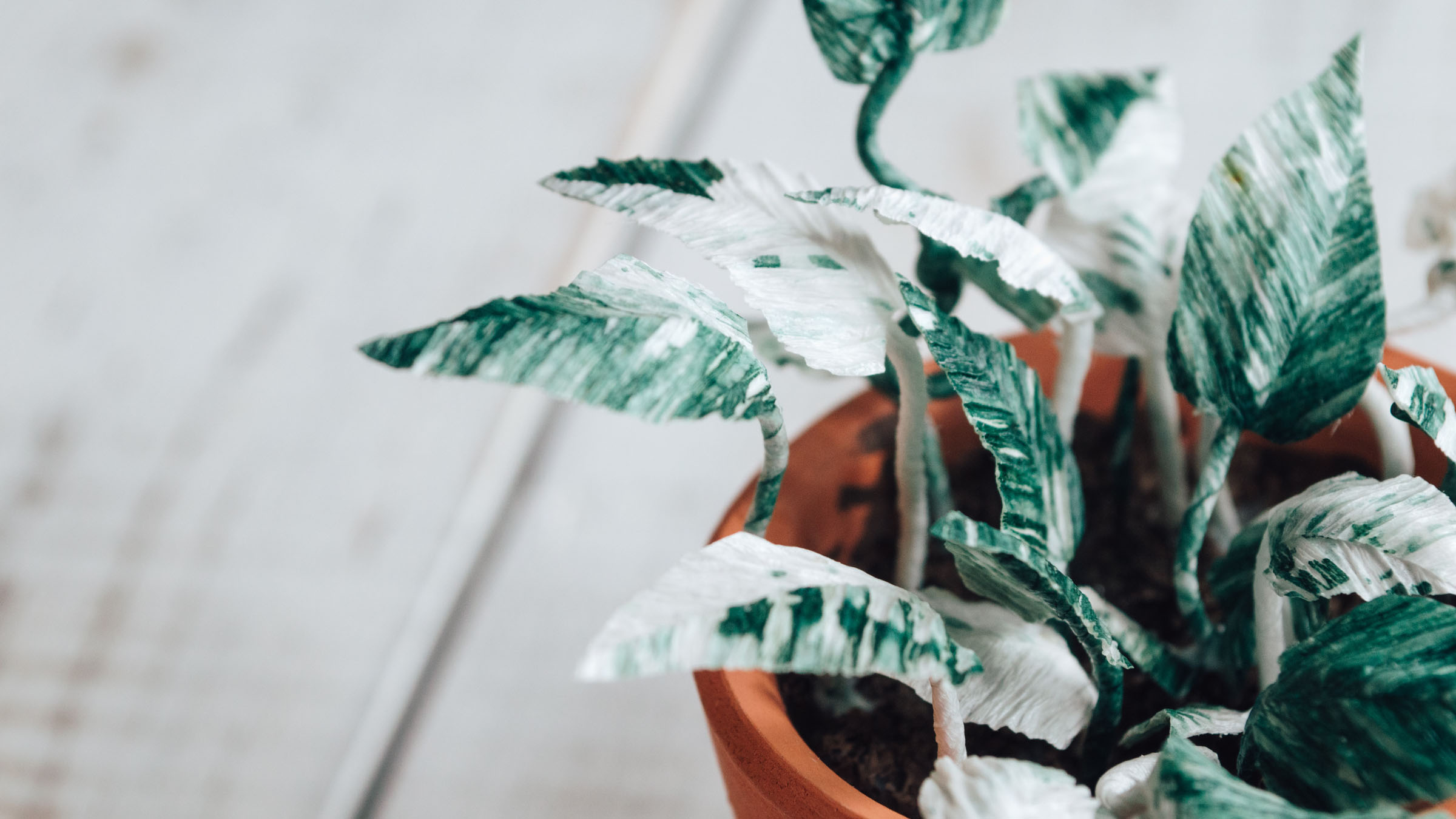











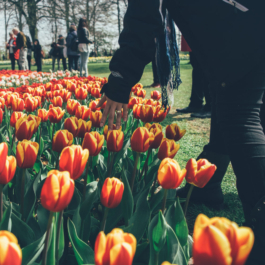
Sorry, the comment form is closed at this time.